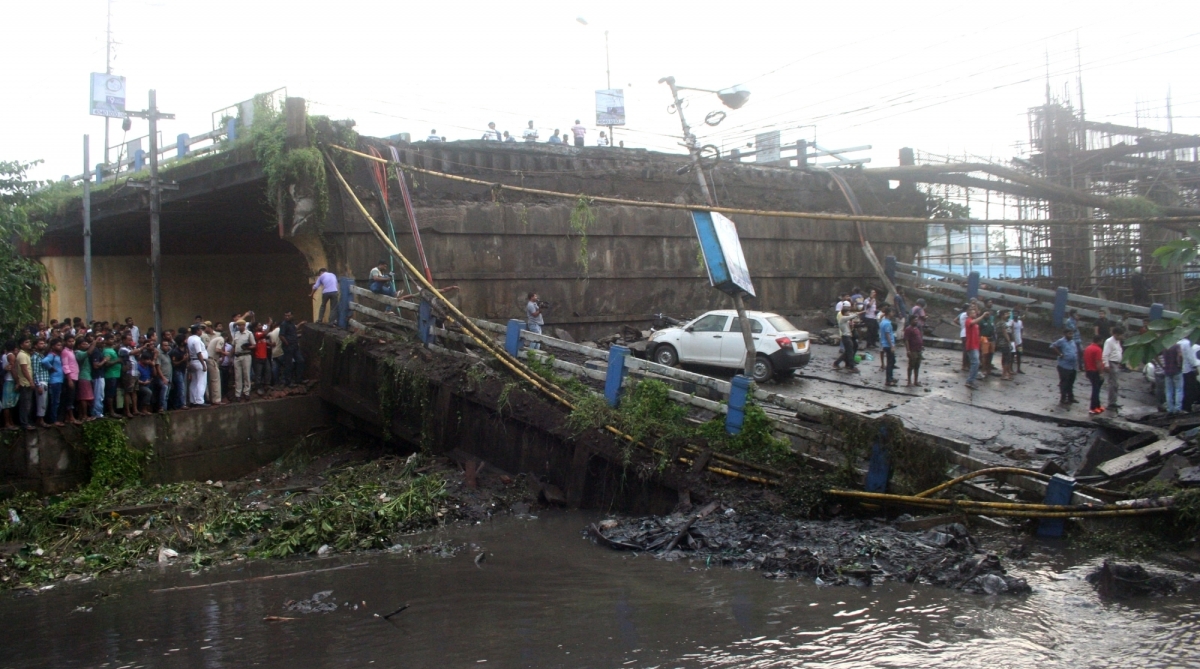The death toll in the Majherhat bridge collapse has risen to three, after the body of a missing labourer, Goutam Mondal, was recovered from the accident site on Thursday. The Kolkata Police has formed a “SIT” to investigate the incident.
City police sources said that after initiating a suo motu case against “unknown persons” in the collapse of Majherhat bridge yesterday, Kolkata police on Thursday formed a “Special Investigation Team” (SIT) to dig deep into alleged complicity of the “unknown persons” responsible for maintenance of the bridge.
Advertisement
The body of Mondal was spotted by the NDRF team at around 5 a.m. on Thursday while dismantling the bridge. After an intense struggle of about an hour, the body of the Murshidabad resident could be recovered. The NDRF team confirmed that no more victims were trapped inside the debris.
Talking to the media, one of the officials of NDRF said that the rescue operations could have been finished earlier but lack of accessibility from both ends of the bridge hindered it. The official also informed that the body of the labourer extricated on Thursday had been badly crushed under the debris.
Meanwhile, several theories for the bridge collapse were given by various groups. While engineers of the Public Works Department (PWD) blamed vibrations emanating from metro construction work going on at the spot, forensic experts highlighted the crack created at the base of the bridge as the reason behind the collapse.
Echoing the chief minister, an engineer from the PWD underscored that the two-way traffic clubbed with huge vibrations from metro construction works nearby created and immense pressure on the girders held together with strong metal wires.
The engineer explained that as there was no technology of placing ball bearings in the gap between the horizontal girders and the vertical pillar in the olden days, the pressure of enormous vehicles along with the vibrations of the metro construction, led to the widening of the gaps.
The ever-increasing load further resulted in the tilting of the slabs sideways. The PWD official pointed out that after being tilted, the pillars could no more bear the intense pressure and crumbled down.











